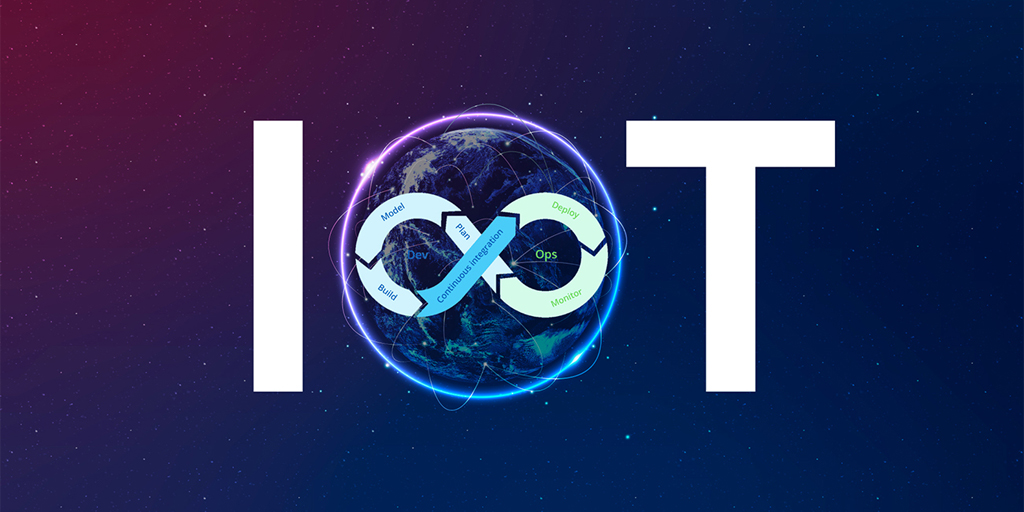
Combining development and operations, DevOps is bringing immeasurable benefits to the IoT industry by optimizing a lot of processes.
IoT and DevOps practices are well suited to each other as it helps provide companies with the required infrastructure to empower cross-functional teams and enhance productivity. Organizations are steadily gaining momentum leading to massive acceptance of DevOps, not just by startups but also the mainstream organizations. Study shows that organizations that successfully implement DevOps tools and practices tend to be ahead of their competitors across key factors like profitability and growth. Not only that, it enables them to reap the immense business benefit while impacting the bottom line. Companies operating in the IoT space, recruit a team with diverse skillsets and operations. The biggest reason is that DevOps helps process immeasurable data to make actionable business decisions.
DevOps Implementation for IoT Companies
DevOps has become one of the most leveraging technologies that are helping boost the IoT industry, and companies are moving to IoT as it is becoming a powerful weapon in their attempt to scale more efficiently.
Since, IoT is a network of physical layer integration with sensors, apps, and other technologies to communicate and share over the internet. Leveraging M2M, Big Data, ML, IoT allows industries to achieve greater performance and quality in their production process.
IoT implementation and DevOps practices are extremely well-suited to each other. Especially because both fields are quite extensive, although broadness manifests differently.
DevOps is helping Enhance the IoT industry
A systematic approach is a prerequisite to succeed in DevOps. This requires organizations to transform themselves. From operations, development teams, QA, and other sectors that participate in the making, DevOps helps boost the IoT industry and the entire company performance.
Better Communication and Collaboration
Increased teamwork and collaboration around the organization is one of the top benefits of DevOps. A greater alignment between quality assurance, operations, and production teams follows a strategy in which all of them partner with the customer to create a tailored solution.
More Effective Testing
DevOps team will find dependencies, obtain functionality insights of the application, and make changes accordingly. With automation and implementation, these procedures have become routine.
Measurement of Analytics and Performance
By pushing the research forward into the process, analytics and success tracking arrive early in the project life cycle. DevOps implements specific analytics models that can forecast quality and organization before rollout.
This data helps companies set up KPIs and measure them effortlessly. Output parameters stick more closely to the key performance measures, which helps increase the overall performance and improve customer experience.
Automation
Through the automation of processes, companies gain the ability to scale solutions while reducing complexity and costs. DevOps takes care of the IoT operational aspects and ensures maximum efficiency of the devices by team positioning.
Continues Integration/Continues Development
Continuous integration and continuous development provide streamlined and automated development processes. This helps speed up deployment through build, test, integrate, deploy, and other automated production pipelines, thus contributing to better agility and communication.

Embracing DevOps Culture
DevOps is not just a toolchain, but a representation of how the company’s work culture. Businesses following DevOps are much quicker and more efficient in keeping up with the high market demands.
In the center of the DevOps culture are agile methodologies, which rely on autonomy and speed. A holistic DevOps entails the collaboration between development, operations, company owners, clients, and partners. When combined, these enable the company to develop and release fast and quality solutions to achieve business goals.
Importantly, DevOps provides faster feedback, which allows the team to improve performance. These can include, automating parameters that optimize energy consumption, and the overall importance of the behavior of all connected devices.
Conclusion
Organizations with DevOps automation are well equipped to deliver IoT promises. As customers become more accustomed to this type of service, they’ll come to demand it, and that’s why DevOps is necessary. In today’s world, when organizations’ technology is intelligent and deep, DevOps’s job is to automate and execute this better and faster.
We at Zigron offer connected IoT devices that have a lifecycle beyond deploy, fix and retire, but about exceeding customers’ expectations. Connectivity among teams creates the opportunity to infuse incremental innovation across the system lifecycle and DevOps helps put an organization in the best position to capitalize on the opportunity.
While empowering service-based organizations, Zigron prides itself in delivering integrated IoT solutions that lead enterprises to get more done. Our team of engineers, architects, and developers are subject matter experts. Using principal concepts and practices behind DevOps methodologies, we design and implement DevOps that supports multiple DevOps pipelines. By leveraging automated testing in different environments, we guarantee high-performance cloud-native applications with the ability to innovate quickly while modernizing existing applications. Learn more about our DevOps and IoT services and step into the world of the future.